Foods That Can Harm or Poison Your Cat
Cats are inquisitive creatures, often drawn to the aroma of human food. While it’s natural to want to spoil your furry companion, some foods we enjoy can pose significant health risks to cats.
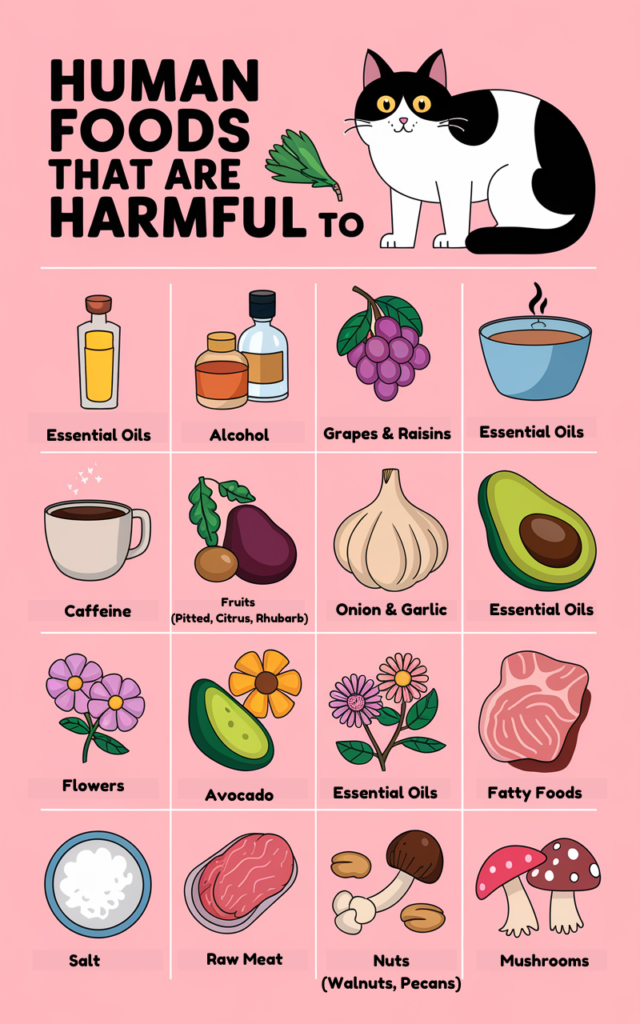
Knowing which foods are dangerous or toxic to cats can save their lives and help prevent costly veterinary visits. Below is a detailed guide on what to avoid feeding your feline friend and why.
Chocolate: A Sweet but Deadly Treat
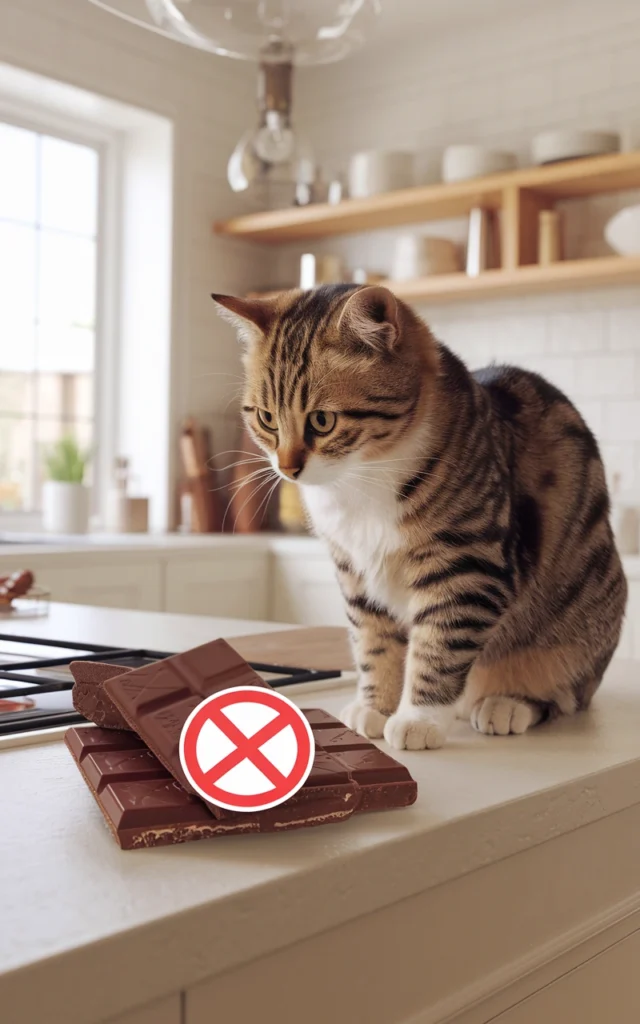
Chocolate contains theobromine and caffeine, compounds highly toxic to cats. Dark chocolate and baking chocolate are particularly dangerous due to their higher concentrations. Ingestion can lead to symptoms like:
- Vomiting
- Diarrhea
- Increased heart rate
- Seizures
Always store chocolate out of reach and avoid leaving desserts unattended.
Onions, Garlic, and Chives: Harmful to Red Blood Cells
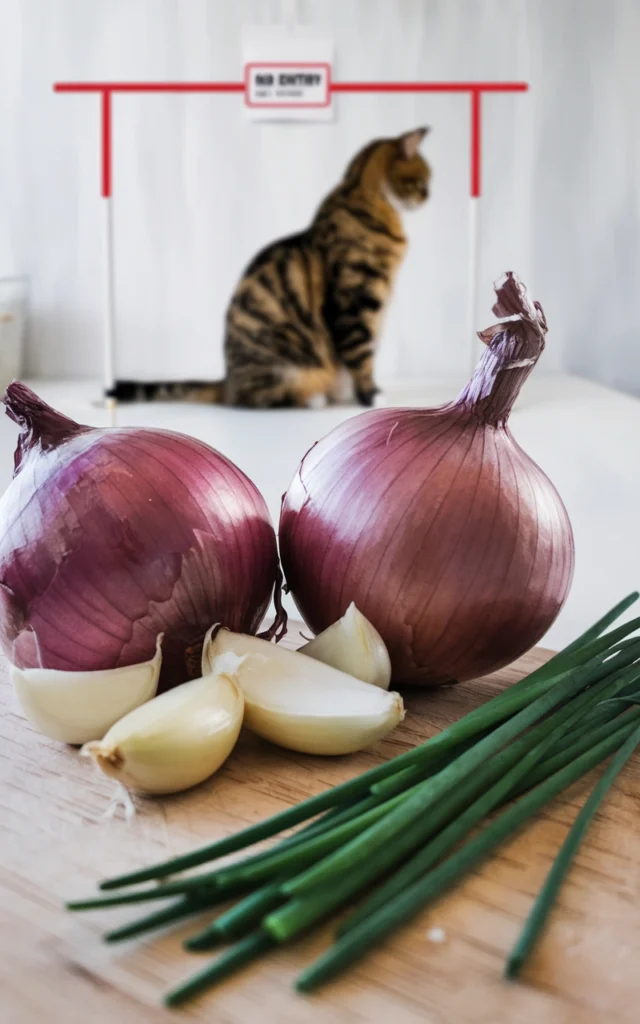
The allium family, including onions, garlic, and chives, can cause anemia in cats by damaging their red blood cells. Even small amounts in raw, cooked, or powdered form are harmful. Symptoms to watch for include:
- Lethargy
- Pale gums
- Decreased appetite
Ensure your cat doesn’t have access to cooked foods containing these ingredients.
Grapes and Raisins: A Kidney Failure Risk
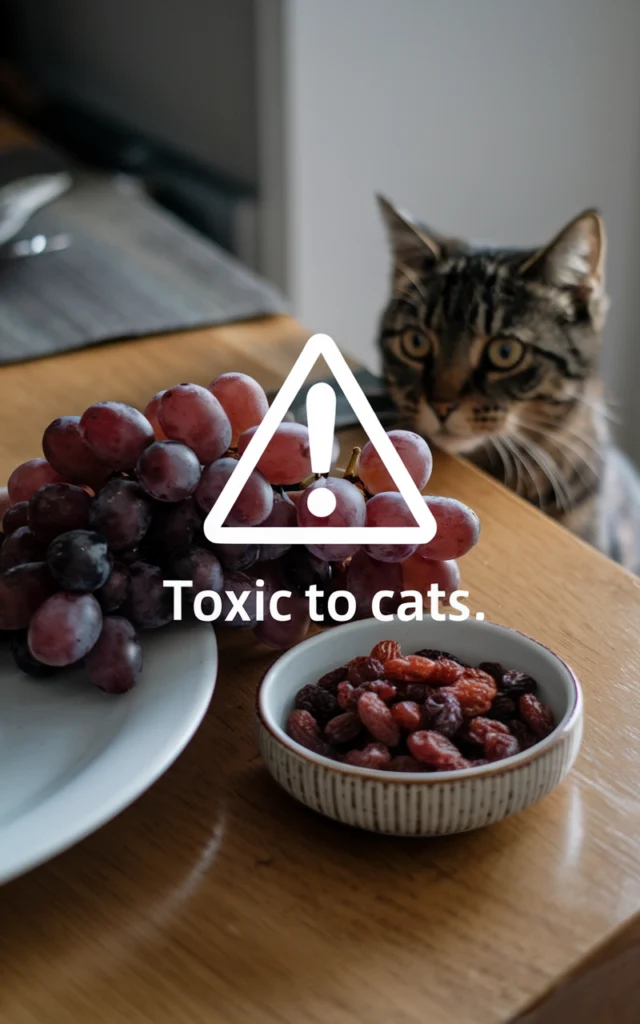
Although more commonly associated with toxicity in dogs, grapes and raisins can also be harmful to cats. These foods may cause acute kidney failure, even in small amounts. Signs of toxicity include:
- Vomiting
- Abdominal pain
- Lethargy
Avoid giving these snacks to your pet under any circumstances.
Alcohol: Even Small Amounts Can Be Dangerous
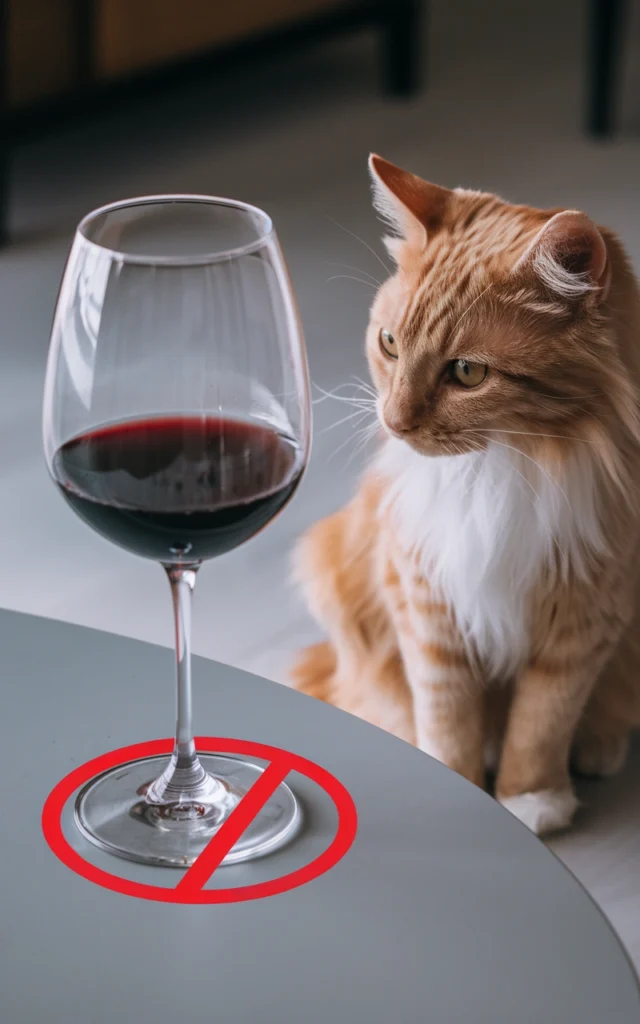
Alcohol isn’t just unsafe for humans in excess—it’s extremely toxic to cats. Even a few drops of beer, wine, or liquor can lead to ethanol poisoning, resulting in:
- Disorientation
- Vomiting
- Difficulty breathing
Keep alcoholic beverages far from your pet’s reach.
Xylitol: A Hidden Hazard in Sweetened Foods
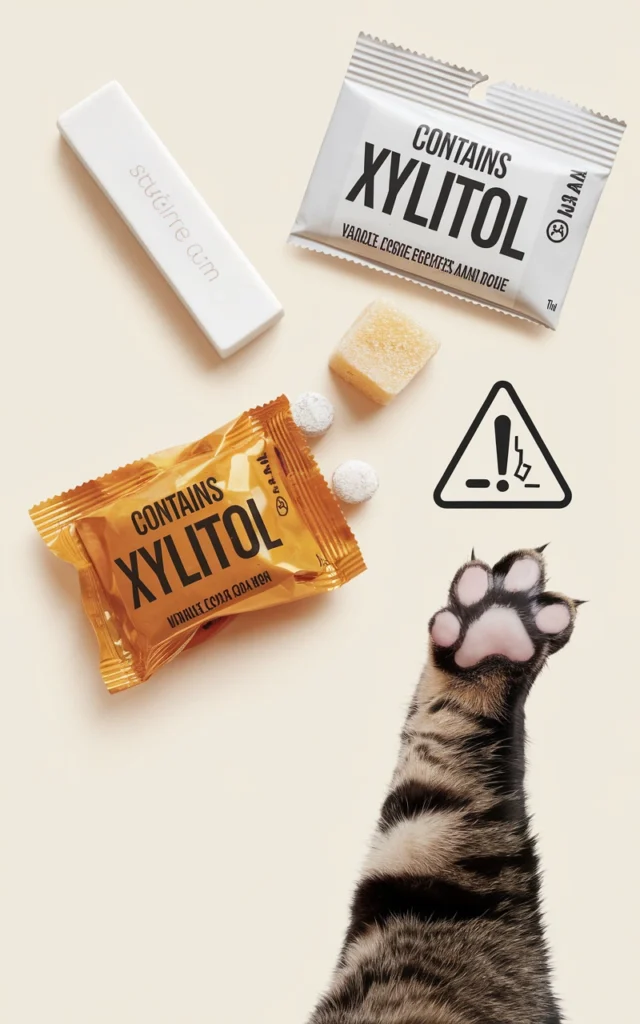
Xylitol, a common sugar substitute in gums, candies, and baked goods, can cause a dangerous drop in your cat’s blood sugar. This can lead to:
- Vomiting
- Loss of coordination
- Seizures
Carefully read ingredient labels and avoid feeding your cat processed human foods.
Raw Fish, Eggs, or Meat: Risk of Bacteria and Deficiencies
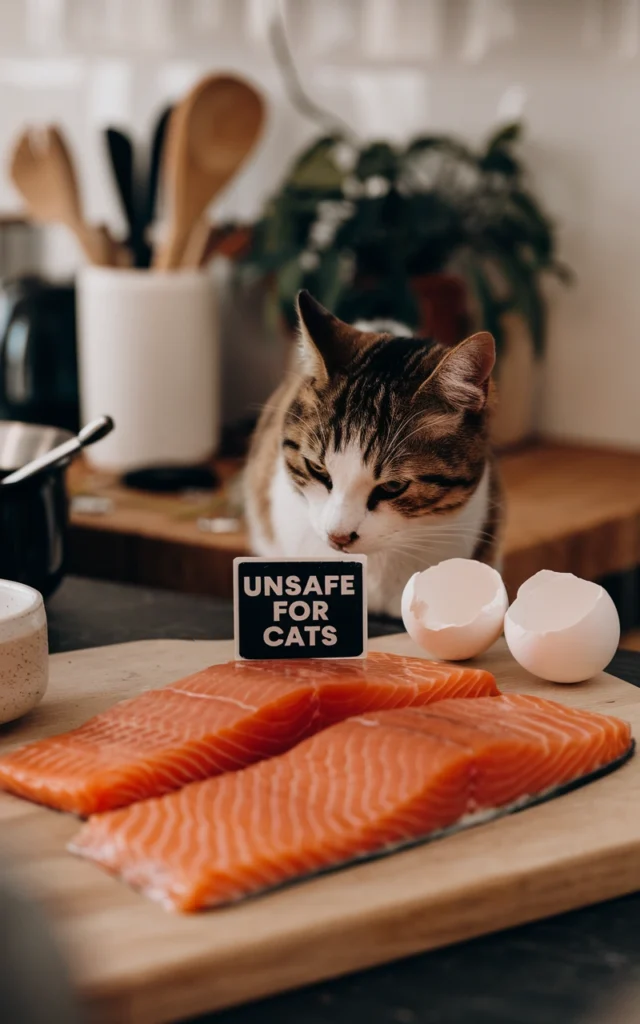
While cats are carnivores, raw foods can harbor bacteria like Salmonella or E. coli, which are dangerous to both pets and humans. Raw eggs contain avidin, which interferes with vitamin B absorption, leading to skin and coat issues. Ensure all food is cooked properly before offering it to your cat.
Dairy Products: Not as Cat-Friendly as You Think
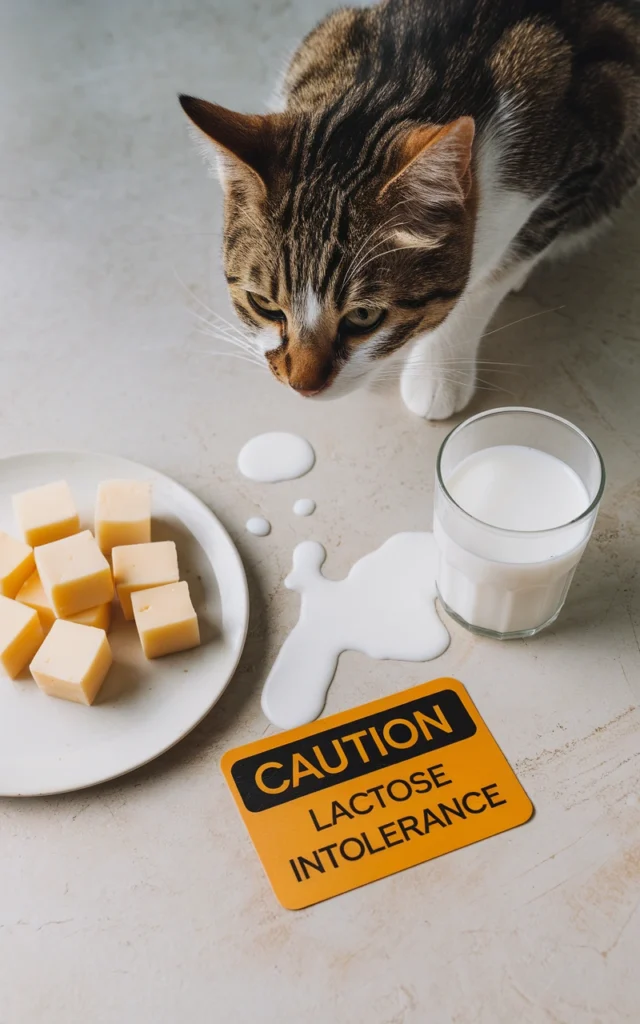
Contrary to popular belief, most cats are lactose intolerant. Feeding them milk, cheese, or other dairy products can lead to:
- Diarrhea
- Stomach pain
- Gas
Opt for specially formulated cat milk if you wish to treat them.
Caffeinated Drinks: Hazardous Stimulants
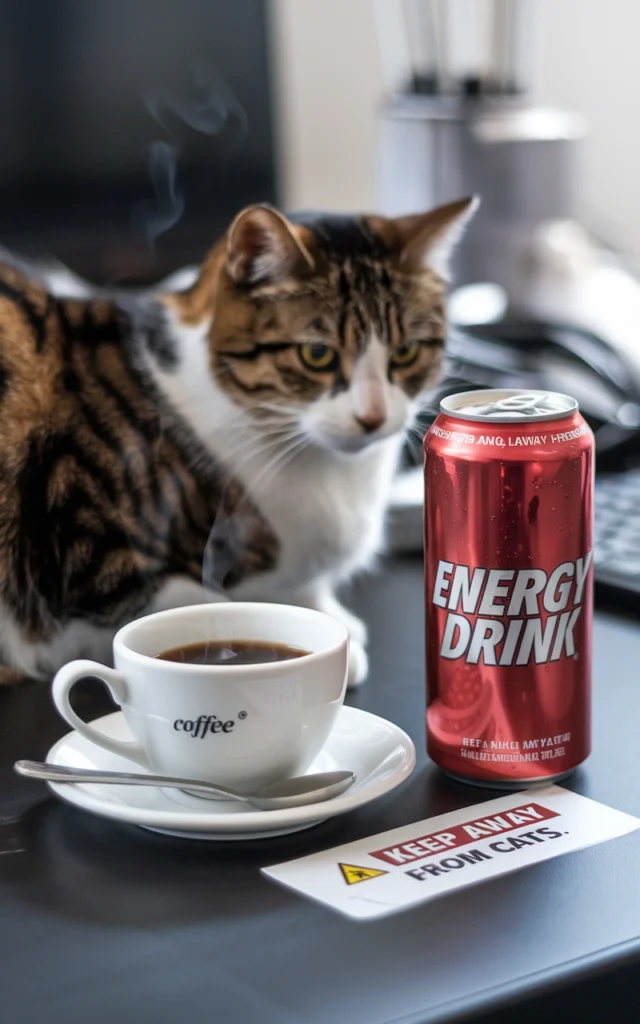
Tea, coffee, and energy drinks are highly toxic to cats due to their caffeine content. Ingesting caffeine can result in:
- Restlessness
- Rapid breathing
- Heart palpitations
Ensure your drinks are kept away from your curious feline.
What to Do If Your Cat Eats a Toxic Food
If you suspect your cat has consumed something harmful, act quickly:
- Identify the Food: Take note of what and how much your cat ate.
- Contact a Veterinarian: Call your vet or a pet poison hotline immediately.
- Do Not Induce Vomiting: Unless instructed by a vet, avoid inducing vomiting as it can worsen the situation.
Keeping Your Cat Safe
Preventing access to harmful foods is the best way to protect your cat. Store human food securely and educate all household members about which foods are toxic. Additionally, provide your cat with a balanced, veterinarian-approved diet to meet their nutritional needs.
By being mindful of what you feed your cat, you can ensure they live a long, healthy, and happy life.
